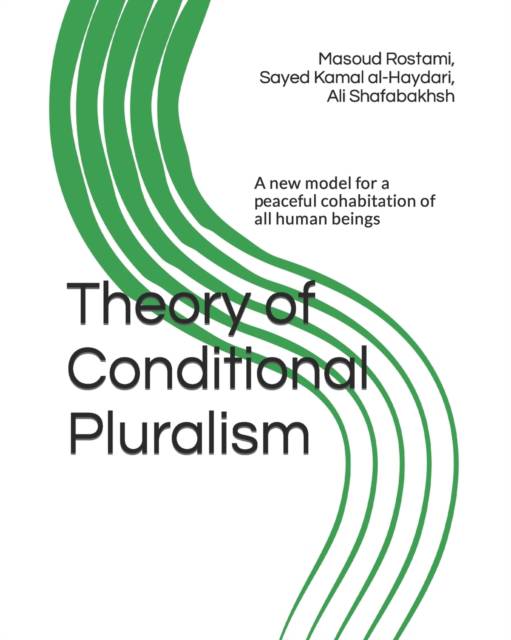
- Afhalen na 1 uur in een winkel met voorraad
- Gratis thuislevering in België vanaf € 30
- Ruim aanbod met 7 miljoen producten
- Afhalen na 1 uur in een winkel met voorraad
- Gratis thuislevering in België vanaf € 30
- Ruim aanbod met 7 miljoen producten
Theory of Conditional Pluralism
A model for a peaceful cohabitation of all human beings
Masoud RostamiOmschrijving
We reject exclusivism and religious inclusiveness, we prove the existence of shortcomings and cavities in religious pluralism in its classical form and then present the "Theory of Conditional Pluralism" (TCP) that contains epistemological differences with its classical counterpart proposed by John Hick. The TCP potentially encompasses all human beings: people who believe in one of the religions or those who do not believe in any of them. After criticizing monopolistic approaches, we propose a new logical methodology to increase the synergy of believers to discover the truth, increase ontological knowledge, and solve conflicts in religious views. In this view, other human undeniable knowledge (e.g. priory knowledge of scientific fields) is not separate from believers' epistemology, and any discovery of truth that can be expressed in the form of objective and intuitive evidential or factual true propositions will renovate the believers' perception. Reviewing, updating, and continuously renovating the believers' epistemology, as well as paying attention to the structure of belief tolerance according to the proposed model, are among the necessary conditions of this model.
Specificaties
Betrokkenen
- Auteur(s):
- Uitgeverij:
Inhoud
- Aantal bladzijden:
- 90
- Taal:
- Engels
- Reeks:
- Reeksnummer:
- nr. 1
Eigenschappen
- Productcode (EAN):
- 9798545616459
- Verschijningsdatum:
- 28/01/2022
- Uitvoering:
- Paperback
- Formaat:
- Trade paperback (VS)
- Afmetingen:
- 203 mm x 254 mm
- Gewicht:
- 195 g

Alleen bij Standaard Boekhandel
Beoordelingen
We publiceren alleen reviews die voldoen aan de voorwaarden voor reviews. Bekijk onze voorwaarden voor reviews.











